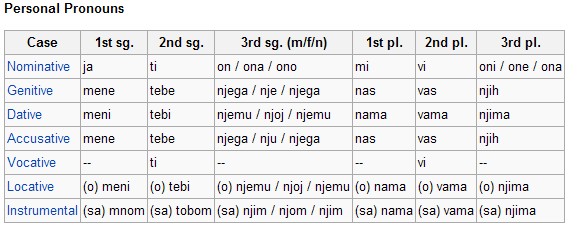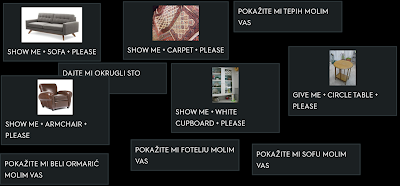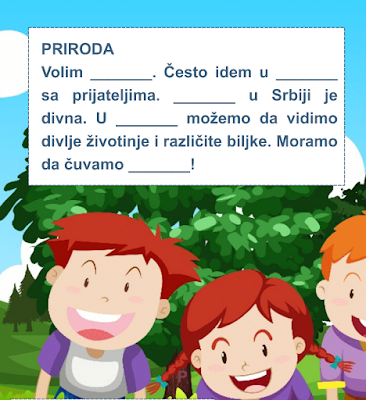Watch this video and do the following exercises:
Speaking Exercise 1.
***Say the coulours as you see them (key in the comment)
Speaking Exercise 2.
*** Start with simple sentences such as:
''I like (green colour)/I don't like (blue colour)"
= VOLIM ZELENu /NE VOLIM PLAVu
(bear in mind that after this verb you need Accusative case:
plava boja --->plavu boju )
Speaking Exercise 3.
*** Say what you see (videti) "I can see (blue colour)" = VIDIM PLAVu BOJu
Speaking Exercise 4.
*** Ask a question "Can you see blue or green colour?"
a. form > DA LI VIDIŠ PLAVu ILI ZELENu BOJu?
b. form> VIDIŠ LI PLAVu ILI ZELENu BOJu?
--- exercises 3 and 4 include Present Simple Conjugations for the first and second person Singular, but you can make it for the plural and/or Past Simple as well (I'll give you one example in the following exercise)
Speaking Exercise 5.
*** Say what you've seen "I've seen/saw blue colour"
(Fem) VIDELA SAM PLAVu BOJu
(Masc) VIDEO SAM PLAVu BOJu
Speaking Exercise 6.
*** Ask a question in the past :
"Which colour have you seen?"
(Fem) KOJU SI BOJu VIDELA?
(Masc) KOJU SI BOJu VIDEO?
"Did you see blue colour?"
(Fem) DA LI SI VIDELA PLAVu BOJu?
(Masc) DA LI SI VIDEO PLAVu BOJu?
HAVE FUN = UŽIVAJTE
Speaking Exercise 1.
***Say the coulours as you see them (key in the comment)
Speaking Exercise 2.
*** Start with simple sentences such as:
''I like (green colour)/I don't like (blue colour)"
= VOLIM ZELENu /NE VOLIM PLAVu
(bear in mind that after this verb you need Accusative case:
plava boja --->plavu boju )
Speaking Exercise 3.
*** Say what you see (videti) "I can see (blue colour)" = VIDIM PLAVu BOJu
Speaking Exercise 4.
*** Ask a question "Can you see blue or green colour?"
a. form > DA LI VIDIŠ PLAVu ILI ZELENu BOJu?
b. form> VIDIŠ LI PLAVu ILI ZELENu BOJu?
--- exercises 3 and 4 include Present Simple Conjugations for the first and second person Singular, but you can make it for the plural and/or Past Simple as well (I'll give you one example in the following exercise)
Speaking Exercise 5.
*** Say what you've seen "I've seen/saw blue colour"
(Fem) VIDELA SAM PLAVu BOJu
(Masc) VIDEO SAM PLAVu BOJu
Speaking Exercise 6.
*** Ask a question in the past :
"Which colour have you seen?"
(Fem) KOJU SI BOJu VIDELA?
(Masc) KOJU SI BOJu VIDEO?
"Did you see blue colour?"
(Fem) DA LI SI VIDELA PLAVu BOJu?
(Masc) DA LI SI VIDEO PLAVu BOJu?
HAVE FUN = UŽIVAJTE

.png)

























